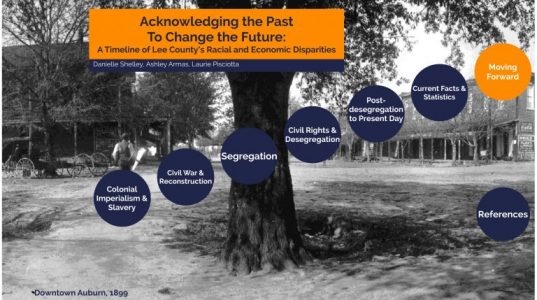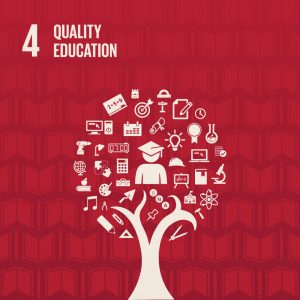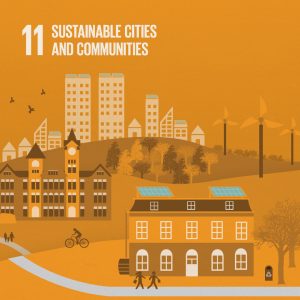By Miriam Wyman.
The Sustainable Development Goal (SDG) Quality Education recognizes the need to “ensure inclusive and equitable quality education and promote lifelong learning opportunities for all.” Quality Education is also highlighted under the U.S. Chapter of the Sustainable Development Solutions Network (SDSN)’s vision for achieving the SDGs through “facilitating public awareness, education, and engagement.” Higher education can address sustainability at many levels: from curricula and study programs to research, and from collaboration across disciplines to outreach with the greater community.
In this way, colleges and universities play an important role in preparing students to meet the many challenges we face, including many sustainability challenges in our globalizing world. Teaching classes on sustainability within the Academic Sustainability Program at Auburn University engages students to understand the interconnectedness of environmental, personal, societal, and eco=nomic wellbeing; to explore various systems we are connected to (e.g., our food, climate change and climate resilience, how we build our cities, our energy choices, how we dispose of our waste, environmental justice, among others); and to examine the impacts of our choices. Collaboration of sustainability practices in education and research is demonstrated through guest lecturers from across campus that are integrated into the SUST 2000 Introduction to Sustainability class, as well as tours that showcase sustainability in action across campus.

A SUST 5000 Student Project.
I also believe that teaching about sustainability is a civic endeavor because there are important ties between the greater community and the classroom. Students who want to be involved in sustainability efforts during their college experience have an outlet with the Academic Sustainability Program, the Office of Sustainability, and various sustainability-related clubs and organizations around campus. In the SUST 5000 Senior Capstone course for the sustainability minor, students are involved with semester-long projects with collaborators on campus and in the greater community. Past projects have included redesigning Floral Park in Opelika to address native landscaping and storm water management as well as making the park more accessible to all; creating invasive species educational material for identification, removal, and suggested native alternatives for homeowners in Alabama; creating a historical timeline on racial equity issues on AU’s campus and surrounding communities; researching the economic viability of electric vehicles for AU; and researching and suggesting plastic re-useable containers for the dining halls, among others (for more on SUST 5000 student projects, visit our Student Work page).
Auburn University integrates interdisciplinary academic programs that focus on the concept of sustainability (the interdependence of ecological systems and social / economic systems). AU’s interdisciplinary minor in sustainability offers a diverse selection of 90+ courses and study abroad programs. I feel there is a culture of collaboration here at AU and a tradition of engaging both faculty and students who are passionate about sustainability issues; together these support higher education’s role in addressing sustainability and promoting sustainable initiatives on campus and in the greater community. This, to me, is quality education.
Contributed by Dr. Miriam Wyman, Instructor with the Academic Sustainability Program
Learn about the SDGs & AU and our contributions related to this post.






